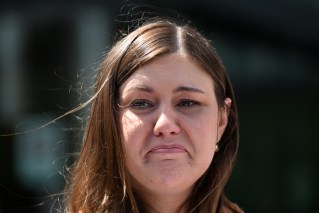Suffering in silence: Why summit must give rural women a voice
Five years after the Palaszczuk Government received the findings of the Not Now, Not Ever report into domestic violence, the challenge in rural and regional Queensland is even more acute.


Picture: Anthony Tran, Unsplash
While hard and fast figures on the rural-urban disparity are near impossible to acquire due to a lack of consistent reporting and data collection, rates of domestic violence are about six per cent higher on average in rural and regional communities across Australia than in our cities.
This estimate aligns with a Commonwealth report, also published in 2015, which aimed to dig beneath the reasons why incidences of domestic and family violence were higher in the bush.
The reasons are a miserable entanglement of cultural values that seek to silence women; to complex financial arrangements, especially common within farming enterprises, that make it harder for women to leave violent partnerships; to definitions of rural hyper-masculinity that emphasise strength, courage and domination but mask internalised male aggression that also manifests in suicide, bullying, homophobia and sexual assault.
It’s a toxic brew that when coupled with the added challenges of geographical isolation and distance from emergency care and support services and limited access to quality, experienced staff, becomes dangerously poisonous – sometimes deadly.
One frontline support worker of a government-funded agency has told InQueensland, on condition of withholding their identity, of frazzled and over-worked colleagues, stretched beyond capacity to meet demand.
And spare a thought for the support workers of the federally funded Queensland Indigenous Family Violence Legal Service, who are given the whole of Queensland to cover from just five offices in Cairns, Townsville, Mount Isa, Rockhampton and Brisbane.
While the overwhelming demand swamping case workers might be tough, it’s still no comparison for families living with the terror of violence – mostly at the hands of men.
According to one of Australia’s foremost domestic and family violence experts, Griffith University’s Associate Professor Molly Dragiewicz, commonly held perceptions of rural life make it more difficult to even draw attention to the problem, let alone attract focused and funded analysis to identify the risks and implement protective strategies.
“It’s pretty consistent in all the research that rates of domestic and family violence in rural and regional areas are higher, which goes against the misconception that smaller towns and rural regions have lower crime rates and are assumed to be safer places to live,” she said.
“Not only are the rates of domestic and family violence higher but your chances of getting help are poorer due to several factors. In small towns it’s hard to be anonymous. If you seek help from the police soon everyone in town is going to know after you’ve been seen walking into a police station.
“And it’s also not uncommon for police and local magistrates, for example, to sometimes be friends with perpetrators, which can compromise the assistance and support women receive.
“And seeking help anonymously online, which is easier closer to a larger city, can be near impossible in some rural areas where they are still suffering from very little to no internet connectivity.”
Premier Anastacia Palaszczuk and her Domestic Violence Prevention Minister Di Farmer are preparing for a summit at the end of this month to lay the groundwork for more domestic and family violence reform in the wake of recent horrific killings in Brisbane and Townsville.
It is frequently quoted that one woman is killed each week in Australia on average at the hands of their male partner or family member. It is a crime that has no regard for demography or geography.
Palaszczuk has promised a “new chapter” in domestic violence reform, calling for all ideas to be offered in a bipartisan forum that needs to rise above politics and deliver in the interests of all Queenslanders.
Palaszczuk says all 140 recommendations from the Not Now, Not Ever report have been implemented, but acknowledges “more needs to be done”.
New chapters work best when they enhance the existing narrative.
Before Palaszczuk and Farmer hold their summit, they may do well to reflect on some of the advice from the Not Now, Not Ever report authors, who wrote:
“A one-size-fits-all approach to designing and delivering integrated service responses across Queensland will not work.
“Challenges faced by victims and service providers in rural and remote communities are significantly different from those faced by victims in metropolitan communities, which in turn differ from those in Indigenous communities and culturally and linguistically diverse communities.
“Integrated, holistic and timely responses to domestic and family violence are needed, tailored to the specific needs of each of these communities.”
If you or someone you know is impacted by sexual assault or family violence, call 1800RESPECT on 1800 737 732 or visit www.1800RESPECT.org.au. In an emergency, call 000.












